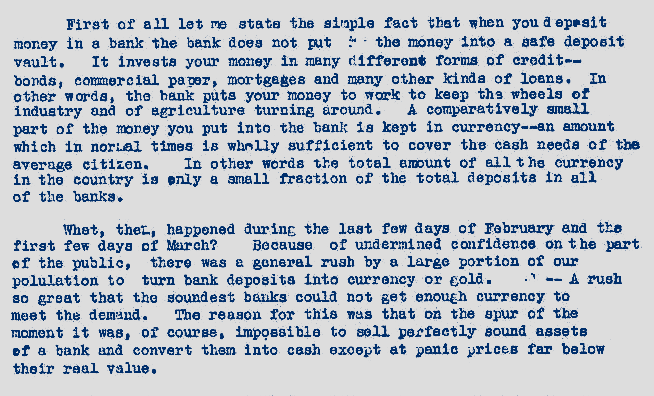FDR's first fireside chat: the banking crisis
The president explained how banks worked to defend his bank holiday policy and forestall further panic
Early in the first year of his presidency, Franklin Roosevelt faced a crisis unlike any other in the nation's history: the Great Depression. Financial panic led millions to rush to their banks to withdraw all of their deposits. And they were right to wonder if their money was safe: More than half of the country’s banks had either failed or suspended withdrawals.
The day he entered office on March 4, 1933, President Roosevelt took action, declaring a banking holiday for March 6. There would be no activity at any bank as Federal auditors went over the books to determine which banks were sound and could reopen. Congress also passed the Emergency Bank Act in a special session, giving the president the power to reopen financially-secure banks.
I want to tell you what has been done in the last few days and why it was done and what the next steps are going to be.
Then, on March 12, the day before the holiday was slated to end, Roosevelt made the banking crisis the subject of his first fireside chat. Using the new medium of radio to talk directly to the American people in his own voice, Roosevelt sought to build trust by explaining the crisis itself as well as the logic behind his actions. “I want to tell you what has been done in the last few days and why it was done and what the next steps are going to be.”
By the end of his 12 years in office, Roosevelt had delivered about 30 such chats, building a unique connection to the American people during frightening and uncertain times.
